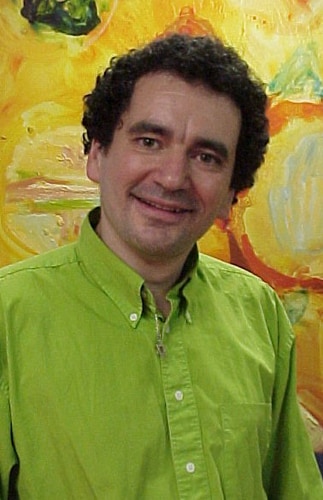
Virgin would Never Recruit Branson
Reading Ricardo Semler’s book 'Maverick!' changed the way Henry Stewart managed his IT training business, Happy, and now he is spreading the word
How did it all start?
I was on holiday ringing back everyday to check if everything was okay and I read Maverick! which was how I’d hoped management could be, but never imagined it would be. Everybody read Maverick!. A year later, I was sick with pneumonia and didn’t make contact with the office. I came back after three weeks off to two phone calls – and sales had gone up. That was the difference that Maverick! made.
Among the changes was to re-think the role of managers. Can you explain?
If you get into work and have a message that your manager wants to see you at 2 pm - do you feel excited? The most radical thing we believe is that managers should be chosen according to how good they are at managing people. They are usually chosen for technical competence and how long they’ve been in the job. As a result, one of the biggest reasons people leave a company is to get away from their manager.
How do you approach recruitment?
We always promote from within. One of the things that really gets me is that most recruiting is absolutely terrible. In my presentations I put up a big picture of David Beckham and a big picture of John Motson and ask which one would your company recruit using the standard recruitment procedure? Most people recruit the one who’s good at talking about it, not the one who’s good at doing it.
And you never ask for qualifications.
No. It’s profoundly discriminating to ask for degrees because normally it has no relation to the job and working-class, disabled and black people are under-represented in universities. It doesn’t happen in Virgin because if it did they wouldn’t recruit Branson.
You talk about “re-evaluating counselling” where you take turns to counsel each other. What does this involve?
The basic principle is that what you’re saying isn’t that complicated. Most people need someone to listen to them, pay attention and support them while they get their feelings out.
Happy has a set of management principles. What are they?
People work best when they feel good about themselves; give people freedom…. with clear principles; feedback is crucial to job ownership; the customer comes second; peer appraisal for managers; systems not rules; requests for funding are pre-approved; recruit for attitude, train for skill; celebrate mistakes; and trust-based organisation.
Trust is key.
Yes, most companies understand what the customer want, but most companies then put in place a system of processes and rules that prevent their frontline staff from delivering what the customers want. You need to trust your people to deliver.
At the same time, people need to make mistakes. I believe the biggest thing that gets in the way of innovation is blame. It prevents people innovating. When Microsoft appointed their research director of their Cambridge facility they told him if everything you do succeeds, you will have failed. And I believe the same is true of my staff. If they’re not doing anything new, you know. So it’s a clear understanding: people need to be making mistakes to be learning.
Henry Stewart, chief executive of Happy, is the co-author of Relax! A Happy Business Story





